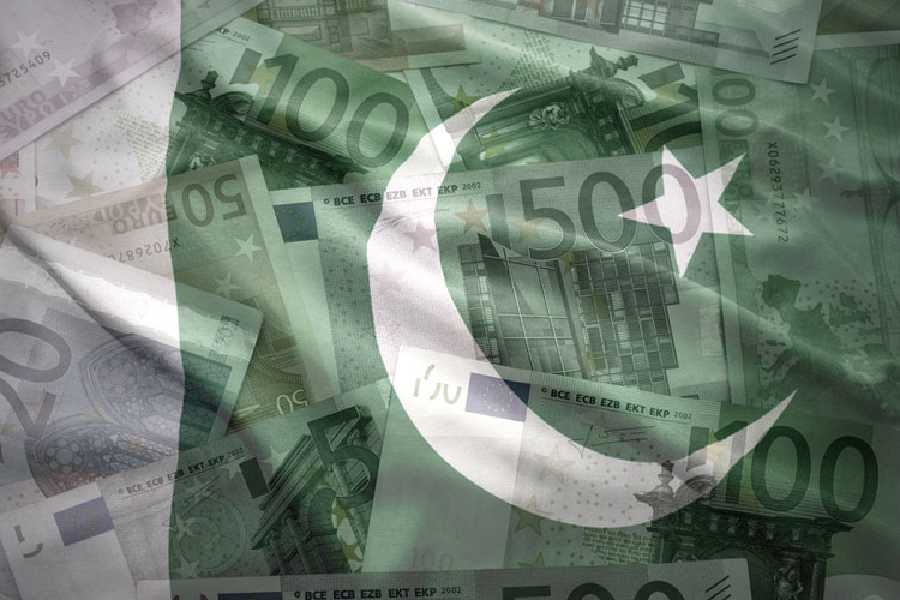Pakistan’s Finance Minister Muhammad Aurangzeb has said that an IMF team is expected to visit Islamabad next month to negotiate a new long-term bailout package to secure a staff-level agreement for the cash-strapped country by mid-July.
Speaking to the media after his week-long visit to Washington, the minister said the contours of the new International Monetary Fund programme will shape up later.
"We will start getting into the granularity of the programme by mid-May,” Dawn News quoted Aurangzeb as saying on Saturday.
Cash-strapped Pakistan has made a formal request to the IMF to seek the next bailout package in the range of USD 6 to USD 8 billion with the possibility of augmentation through climate financing.
Addressing journalists at the Pakistan Embassy in Washington, Aurangzeb expressed the hope that the global lender's board of governors would convene to consider the last tranche of the current programme by the end of this month, with the final instalment released shortly thereafter.
In earlier statements, Aurangzeb had said Pakistan would prefer a long-term, preferably a three-year programme.
However, when asked at Saturday’s briefing, Aurangzeb said he would not speculate on the size or the duration of the programme yet.
Earlier, Aurangzeb said that Pakistan can repay its debt to Beijing only after completing the second phase of the multi-million dollar China-Pakistan Economic Corridor (CPEC).
The minister’s candid remarks followed discussions with key financial institutions like the IMF and World Bank, alongside senior US officials in Washington this week.
Explaining his stance on this sensitive issue, Aurangzeb said: “The CPEC was a champion project for Pakistan and a lot of infrastructure was created during its first phase. Now, what’s supposed to happen was for us to go into CPEC Phase 2, which was and remains the way we monetise that infrastructure because that’s where the special economic zones come in.” The minister elaborated that through these special economic zones, Pakistan would attract further Chinese investment.
Emphasising the necessity of completing this process, the minister said: “There’s a lot of discussion about how you are going to repay the debt, that’s how it was supposed to happen.” He expressed gratitude to the Chinese government and banks for their assistance in debt servicing and noted: “But ultimately, these debts have to be paid. And that’s only going to be there when we get phase 2 going in real earnestness.” In an earlier meeting with Chinese Finance Minister Lan Fo’an in Washington, Aurangzeb commended China’s invaluable contribution to Pakistan’s development through initiatives like CPEC.
He discussed Phase-I’s focus on infrastructure building and Phase-II’s emphasis on special economic zones and relocation of Chinese private-owned companies, said a statement issued by the finance minister's office.
Aurangzeb expressed gratitude for Chinese support, particularly its SAFE deposits, and informed his Chinese counterpart about Pakistan’s broader IMF programme and its interest in accessing the Chinese bond market with a Panda Bond.
China's State Administration of Foreign Exchange (SAFE) is the Chinese government's foreign exchange and international trade agency of the People's Bank of China.
On Saturday, Aurangzeb met representatives from S and P Global and Fitch Ratings and shared his country’s positive indicators under the IMF’s Stand-by Arrangement (SBA).
He also highlighted the ongoing reforms in taxation, energy, and privatisation across short-medium and long-term horizons.
Additionally, the minister discussed the alignment of the World Bank’s agenda with government priorities, including climate change and digitalisation.
He mentioned potential Saudi investments and addressed concerns from rating agencies regarding the external side, inflation, primary balance, and interest rates, according to Dawn News.
After contracting in 2023, growth in Pakistan's economy is projected to rebound to 2 per cent in 2024, supported by continuing positive base effects in the agriculture and textile sectors.
Pakistan's current USD 3 billion arrangement with the IMF runs out in late April and the government is seeking a longer and bigger loan to help bring permanence to macroeconomic stability and an umbrella under which the country can execute much-needed structural reforms.
The IMF however emphasised that prioritising reforms to revitalise the Pakistani economy outweighs the size of the new loan package being negotiated.
Except for the headline, this story has not been edited by The Telegraph Online staff and has been published from a syndicated feed.










